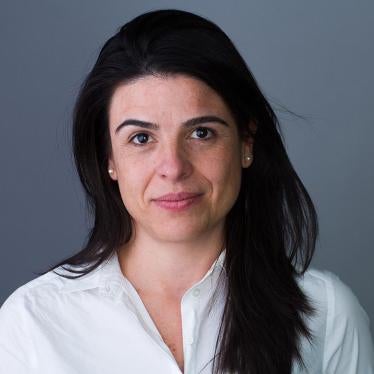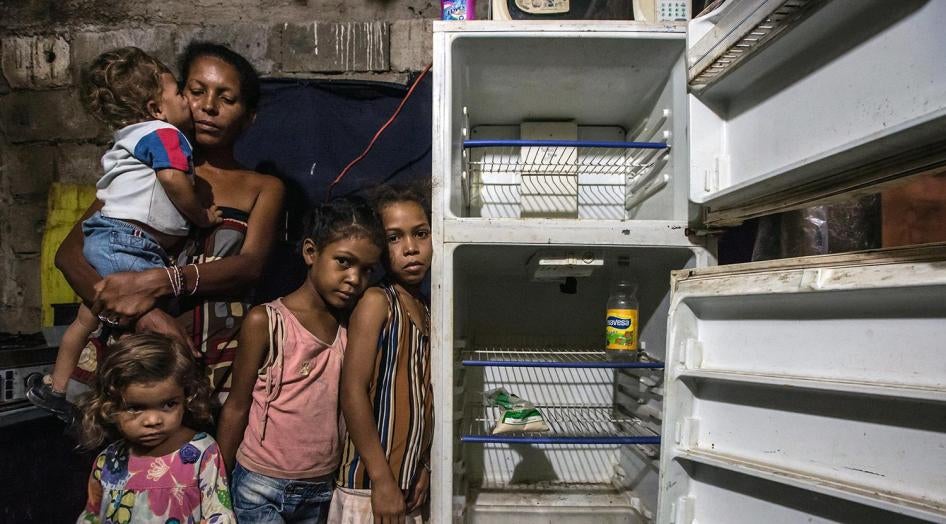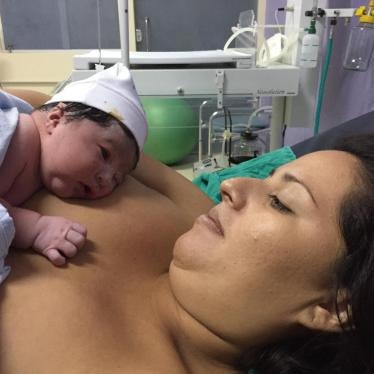When I was last in Venezuela, at the end of 2015, the effects of the humanitarian crisis were already on display. People waited in long lines to buy such basics as rice and flour—and often went home empty-handed hours later when supplies ran out. Hospitals and pharmacies were so short of such essentials as gauze, syringes, and antibiotics that they had to turn away desperate patients. Yet the government kept denying the crisis and punishing people who spoke up about it.
Even more disturbing than the shortages was the fear. I was in Caracas to investigate police raids in poor settlements aboil with allegations of mass detentions, forced evictions, extrajudicial executions, and the bulldozing of homes. Some witnesses we interviewed were afraid to meet in public, and we had to smuggle them into our hotel to hear their stories.
The fear was understandable. The government of Nicolas Maduro has routinely lashed out at its critics, jailing political opponents, censoring media outlets, threatening doctors and nurses, and harassing human rights defenders. My most chilling interviews were with parents of students jailed and tortured for participating in anti-government protests.
Maduro’s predecessor, Hugo Chavez, packed the Supreme Court with political supporters in 2004, and over time brought the rest of the judiciary, the electoral apparatus, and other state institutions under his control. It is this unchecked power that has allowed Maduro’s government both to stay a disastrously ineffective course in the face of crisis and punish its critics with impunity.
Venezuela’s neighbors have finally begun to object. The permanent council of the Organization of American States (OAS) in late March voted to scrutinize the country’s political and economic crisis – a clear slap at a government that denies a crisis exists. The Maduro government reacted by accusing member states of supporting a coup d’etat.
Back in Venezuela, the Supreme Court moved to get rid of opposition lawmakers who had, in the last election, become a majority in the National Assembly. The court ruled that legislators who supported the OAS action had committed treason and would lose their parliamentary immunity. Two days later, the court stripped the entire National Assembly of its powers to legislate.
Most governments in the region immediately denounced the gutting of Venezuelan democracy. Maduro backed down, telling the court to reconsider its rulings—and within just a few hours, it complied, withdrawing the most offensive provisions. As the Court’s performance made clear, it remains firmly under the president’s control. And even before its abortive takeover, it was, for months, severely undermining the National Assembly’s most basic powers. Many of those older rulings remain in force.
A year ago, OAS Secretary General Luis Almagro was a lone voice calling for the restoration of democratic rule in Venezuela. Now he has a chorus of leaders throughout the region behind him.
Brazil has joined the chorus. But it could do more, by working actively and multilaterally, including with Almagro and the OAS, to press Venezuela to free its political prisoners, hold elections, and restore the independence of its courts. Brazilian institutions also face big challenges. But even in the midst of our political and economic troubles, we remain the region’s largest democracy. We have an obligation to help Venezuelans restore their own democracy.









